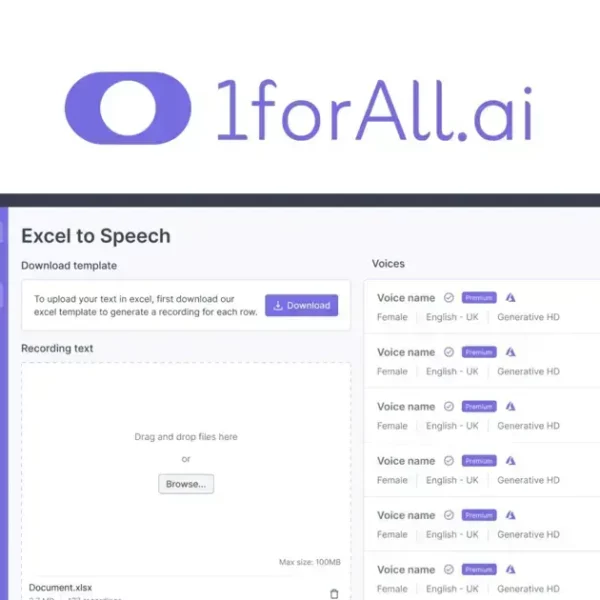A successful CRM campaign is essential for enhancing customer relationships and driving business growth. By implementing clear strategies, utilizing effective tools, and avoiding common pitfalls, businesses can engage customers effectively and achieve measurable success.
CRM campaigns are essential for businesses looking to enhance customer relationships. These strategies not only foster engagement but also boost customer loyalty and retention, which are crucial in today’s competitive market. In this article, we’ll dive deep into what makes a CRM campaign effective, the strategies you can implement, and the tools available to help you succeed.
Understanding CRM Campaigns and Their Importance
Understanding CRM campaigns is essential for any business looking to enhance customer relationships. A Customer Relationship Management (CRM) campaign involves strategic initiatives aimed at managing and analyzing customer interactions and data throughout the customer lifecycle. The goal is to improve customer service relationships, assist in customer retention, and drive sales growth.
Why Are CRM Campaigns Important?
CRM campaigns help businesses understand their customers more deeply. By collecting and analyzing data, companies can tailor their marketing strategies to meet customer needs effectively. This personalization can significantly increase customer satisfaction and loyalty.
Features of a Successful CRM Campaign
A successful CRM campaign includes several key features, such as targeted messaging, segmentation of audiences, and the use of analytics to measure effectiveness. By categorizing customers into different groups, businesses can create more relevant campaigns that resonate with specific audiences. Additionally, analyzing the response to these campaigns helps to refine future strategies.
How to Build Effective CRM Campaigns
Building an effective CRM campaign starts with clear objectives. Identify what you want to achieve, whether it’s increasing sales, enhancing customer retention, or improving brand awareness. Following this, leverage CRM tools to gather data and segment your audience for targeted outreach.
Common Mistakes to Avoid
Common mistakes in CRM campaigns include failing to segment customers effectively, neglecting follow-ups, and not measuring success. Avoiding these pitfalls is crucial for maximizing the effectiveness of your campaign and ensuring customer engagement.
Key Strategies for Effective CRM Campaigns

Implementing key strategies for effective CRM campaigns is vital for businesses to engage customers successfully. These strategies focus on understanding customer needs and preferences to deliver personalized interactions that drive results.
1. Customer Segmentation
Start by segmenting your customer base into distinct groups based on demographics, purchase behavior, and preferences. This enables you to tailor your messaging and offers to each segment, leading to more effective campaigns.
2. Personalized Communication
Personalization is essential in CRM campaigns. Use the data collected through your CRM system to create relevant content and email communications that address the specific interests and needs of your customers.
3. Utilizing Automation
Automation tools can enhance the efficiency of your CRM campaigns. By automating repetitive tasks such as email follow-ups and responses, you free up time for your team to focus on creative strategies and customer engagement.
4. Analytics and Feedback
Make sure to track the performance of your CRM campaigns through analytics tools. By understanding what works and what doesn’t, you can continuously refine your approach. Collecting customer feedback also helps in making necessary adjustments to improve campaign effectiveness.
5. Consistent Engagement
Maintaining consistent engagement with your customers is crucial. Regular touchpoints through newsletters, social media, and personalized messages keep your brand top-of-mind and fosters customer loyalty.
Measuring Success: Analytics in CRM Campaigns
Measuring success is crucial in any CRM campaign, as it allows businesses to evaluate the effectiveness of their strategies and make informed decisions. Analytics provides insights into customer behavior, campaign performance, and sales trends.
1. Key Performance Indicators (KPIs)
Establish clear Key Performance Indicators (KPIs) to gauge the effectiveness of your CRM campaigns. Common KPIs include conversion rates, customer engagement levels, and return on investment (ROI). By monitoring these metrics, you can assess what aspects of your campaign are working and where improvements are needed.
2. Use of CRM Analytics Tools
Many CRM platforms come with built-in analytics tools that help you track data related to customer interactions, lead generation, and sales. Utilizing these tools allows for real-time data analysis, making it easier to adjust your campaigns based on performance.
3. Customer Feedback Analysis
Gathering and analyzing customer feedback is an essential part of measuring campaign success. Surveys, reviews, and direct communication can provide valuable insights into customer satisfaction and areas for improvement, helping you to refine future campaigns.
4. A/B Testing
Implementing A/B testing can significantly enhance your CRM campaign effectiveness. By comparing two different versions of emails, landing pages, or promotions, you can determine which elements resonate better with your audience and optimize accordingly.
5. Regular Reporting
Establish a routine for regular reporting on CRM campaign performance. This could be weekly or monthly, depending on the campaign’s length. By consistently reviewing performance reports, you can quickly identify trends and adjust your strategy to improve results.
Top Tools for Running a CRM Campaign

Using the right tools can greatly enhance the effectiveness of your CRM campaigns. Here are some of the top tools for running a CRM campaign that can help you manage customer relationships and streamline marketing efforts.
1. HubSpot CRM
HubSpot CRM is a user-friendly platform that offers powerful features like email tracking, contact management, and sales automation. It allows businesses to manage interactions with customers effectively while also providing analytics to measure campaign success.
2. Salesforce
Salesforce is one of the leading CRM tools available. It offers a wide range of features including lead and opportunity management, automation, and comprehensive reporting. Its robust capabilities make it suitable for businesses of all sizes looking to enhance their customer engagement.
3. Zoho CRM
Zoho CRM provides a cost-effective solution with features like social media integration, automation tools, and customizable dashboards. Its integration with other Zoho applications makes it a popular choice for small to medium-sized businesses.
4. Mailchimp
While primarily known for email marketing, Mailchimp has robust CRM features allowing users to manage contacts and run targeted email campaigns. It’s especially useful for tracking campaign performance and automating follow-up communications.
5. Pipedrive
Pipedrive is ideal for sales teams looking to improve their sales processes. It offers easy-to-use pipelines for tracking leads and deals, along with automation capabilities to streamline repetitive tasks and follow-ups.
6. Microsoft Dynamics 365
Microsoft Dynamics 365 is a powerful tool that combines CRM and ERP functionality. It offers extensive customization options, enabling businesses to tailor their CRM experience to meet specific needs, including marketing automation and customer service management.
Common Pitfalls to Avoid in CRM Campaigns
Avoiding common pitfalls in CRM campaigns is essential for success. By recognizing these challenges early on, businesses can make necessary adjustments to improve their efforts.
1. Lack of Clear Goals
Starting a CRM campaign without clear goals can lead to confusion and poor performance. It’s crucial to define what you want to achieve, whether it’s increasing sales, improving customer satisfaction, or enhancing brand loyalty.
2. Poor Data Quality
Having inaccurate or incomplete data can significantly hinder the effectiveness of your CRM campaigns. Make sure to regularly clean and update your data to ensure that you are reaching the right audience with the right message.
3. Neglecting Customer Segmentation
Failing to segment your audience can result in generic messaging that does not resonate with your customers. Take the time to analyze your customer base and tailor your campaigns based on their specific needs and preferences.
4. Ignoring Customer Feedback
Customer feedback is invaluable when refining CRM strategies. Ignoring feedback can lead to repeat mistakes. Listen to what your customers say and adapt your approach accordingly to better meet their expectations.
5. Overlooking Analytics
Not using analytics tools can mean missing out on key insights about your campaign’s performance. Regularly review analytics to understand what’s working and what’s not, and use this information to enhance future campaigns.
6. Failing to Train Staff
Implementing new CRM systems without proper training for staff can lead to underutilization of the tools. Ensure your team is well-trained and understands how to use the tools effectively to maximize their impact on your CRM campaigns.
In Conclusion: Mastering CRM Campaigns for Success
CRM campaigns are crucial for building strong customer relationships and driving business growth. By implementing effective strategies and leveraging the right tools, businesses can enhance their engagement efforts.
Avoiding common pitfalls such as poor data quality and a lack of clear goals is essential for success. Regularly measuring success through analytics will help refine your approach and ensure your campaigns are effective.
Remember, a well-executed CRM campaign not only improves customer satisfaction but also sets your business on the path to long-term success and growth.
FAQ – Frequently Asked Questions About CRM Campaigns
What is a CRM campaign?
A CRM campaign is a strategic initiative aimed at managing customer relationships, utilizing data to enhance customer interactions and improve sales.
How can I ensure the success of my CRM campaigns?
Establish clear goals, maintain high-quality data, segment your audience, regular analytics, and consistently engage with your customers to ensure success.
What are some common pitfalls in CRM campaigns?
Common pitfalls include lack of clear goals, poor data quality, neglecting customer segmentation, ignoring feedback, and not using analytics.
What tools can I use for managing CRM campaigns?
Popular tools include HubSpot, Salesforce, Zoho CRM, Mailchimp, and Microsoft Dynamics 365, which help in managing customer data and tracking campaigns.
How important is customer feedback in a CRM campaign?
Customer feedback is vital as it helps identify strengths and weaknesses in your approach, allowing you to adjust strategies to better meet customer needs.
What role does analytics play in CRM campaigns?
Analytics provides insights into campaign performance, customer behavior, and ROI. It guides decision-making and helps refine future marketing strategies.




